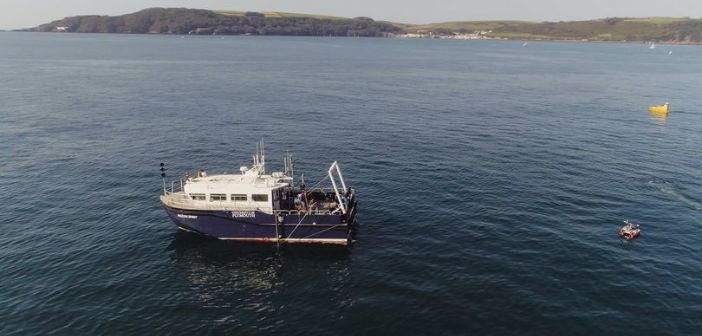A project which aims to develop a fully electric autonomous vessel to map the seabed has received funding from Innovate UK.
A collaboration, between Devon-based technology company HydroSurv Unmanned Survey and the University of Plymouth, has received a grant of more than £266,000 from Innovate UK’s Smart Grants programme. The investment will be used to create a robotic boat, equipped with acoustic sensors, which can map seagrass beds.
The proposed system centres upon the use of low-impact, uncrewed data acquisition platforms and non-invasive survey techniques, and will involve developing and training new machine-learning algorithms to classify submerged aquatic vegetation.
Furthermore, the partnership said the sensors will be trained to provide a rapid and robust coverage providing biomass assessments that can inform ongoing monitoring programmes.
The project, which will include more than 40 days of on-water validation and testing, will build upon existing seagrass research being performed by the University.
Researchers will work in the deep inlet Plymouth Sound and the wider Southwest region, but added that the system could ultimately help researchers map, classify and monitor seagrass habitats globally. This would drive benefits such as blue carbon sequestration, protection of marine biodiversity and creating the conditions for security of fisheries and ocean food sources.
David Hull, chief executive of HydroSurv, said: “The use of seagrass as a means of carbon sequestration is well-studied and documented, and we’re beginning to see a shift towards initiatives that can monetise protection and restoration of seagrass ecosystems as capture and offsetting projects.
“To support this, we need non-invasive and economic solutions to monitor aquatic vegetation, and this project – in collaboration with University of Plymouth – is an important step in making this vision a reality.”









